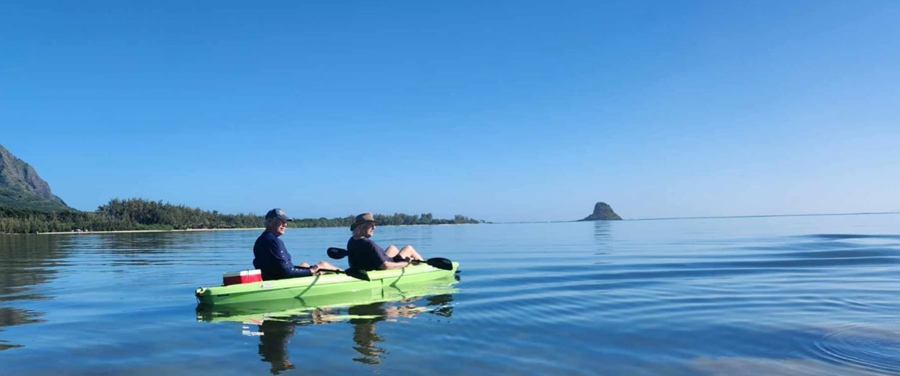Note this announcement from one of our project partners.
No images? Click here

photo @rlabonte
CANeLearn Webinar
2023 State of the Nation: K-12 e-Learning in Canada
The Canadian eLearning Network (CANeLearn) is pleased to host Dr. Michael Barbour and Dr. Randy LaBonte, authors of the annual State of the Nation: K-12 e-Learning in Canada annual report, to discuss the results of this year’s study.
Tuesday, 05 March 2024 at 3:30 PM Pacific Time
To register, visit:
https://zoom.us/meeting/
After registering, you will receive a confirmation email containing information about joining the meeting.
Please feel free to share the notice of this webinar.
______________________________
About the State of the Nation Report
The 16th issue of the annual State of the Nation: K-12 e-Learning in Canada study describes the changes related to e-learning governance and activity over the past year. Jurisdictional profiles describe the activity and nature of governance for each province, territory, and Indigenous programs under federal jurisdiction. Like previous publications, this issue describes changes in governance and e-learning activity while full profiles remain on the project research website ( https://k12sotn.ca/ ).
The 2022-23 school year saw a post-pandemic return to regular classroom-based instruction, reducing the online and distance education options across the country. Some jurisdictions continued with remote learning, others merged remote learning programs with more robust e-learning programs, while many simply redirected parents and students to their existing online learning programs. In addition, many jurisdictions restarted implementation of regulatory changes that were delayed during the pandemic.
Before the pandemic, e-learning data from the Ministries of Education were more easily sourced and precise. However, the 2022-23 school year saw the lowest response rate since the very early years of this project. While this lack of response does not impact the ability to report on the nature of regulation in each jurisdiction, it has impacted the ability to accurately reflect the level of activity in some jurisdictions, with eight of the 14 jurisdictions showing a decrease in the number of students engaged in K-12 e-learning. The decline is likely also due to the artificial inflation of participation during the pandemic. Otherwise, distance or online learning enrollment remained stable across the country with Western Canada still reporting the largest level of student participation in online programs, while Atlantic Canada had the lowest level.
Regulatory changes initiated in the 2021-22 school year were implemented in the 2022-23 school year. British Columbia finalized policy changes to create designated provincial school providers and a quality assurance framework. Manitoba began developing a provincial remote learning strategy, including an online high school, however, to date this process has not changed the actual provision of K-12 e-learning. In Québec, the distance learning pilot projects continued, but no data was provided, likely contributing to the reported decline in e-learning in the province. Ontario saw the implementation of requiring online courses that spurred an increase in the number of private schools offering e-learning. This should bring an increase in enrollment that matches or surpasses the Western provinces in future years, should that data be made available.
The State of the Nation: K-12 e-Learning in Canada report, and its accompanying publications on its project website, provide critical information and insight into how Canadian educational authorities and governments are integrating technology-supported approaches to prepare students for today’s economy and future society in which the use of technology will be ubiquitous. The report and website provide a benchmark for educators and offer background, guidance, and ideas for the improvement of policy and practice in online and blended learning.
K-12 eLearning Program Survey: We Need Your Voice!
Please note, for the purposes of this survey e-learning is defined to include all forms of K-12 distance and online education (i.e. correspondence, videoconferencing, and online learning), as well as identified instances of blended learning where at least some portion of education is provided in a face-to-face setting.
Thank you in advance for your consideration, time and input into the State of the Nation research.
Click here to update/add your program
CANeLearn Partner Events: Check them out!
Register Now!
Sponsor!
This hybrid event is brought to you by BC Educators for Digital Learning, CANeLearn, and the BC Partners in Online Learning
Stay Connected!
- Use #CANeLearn to stream specific items of interest to members. Join the conversation!
- Follow @CANeLearn, “like” us on Facebook, subscribe to our YouTube Channel
- Check out our Members’ Site
- Join CANeLearn – only $50 for associate membership!

CANeLearn acknowledges the shíshálth Nation on whose traditional territories, here at xwilkway (Halfmoon Bay BC), where we are privileged to live, work, and play. Through our work, we are learning to incorporate Indigenous epistemologies while supporting Indigenization and systemic changes in the K-12 online learning environment of Canada.
Photo by @rlabonte
The Canadian eLearning Network (CANeLearn) is a Canadian registered not-for-profit society with a vision to be the leading voice in Canada for learner success in K-12 online and blended learning. CANeLearn provides members with networking, collaboration, and research opportunities..
CANeLearn promotes effective practice in online and blended learning; fosters community and facilitates interaction among online and blended learning educators; and connects educators to online and blended learning organizations.






